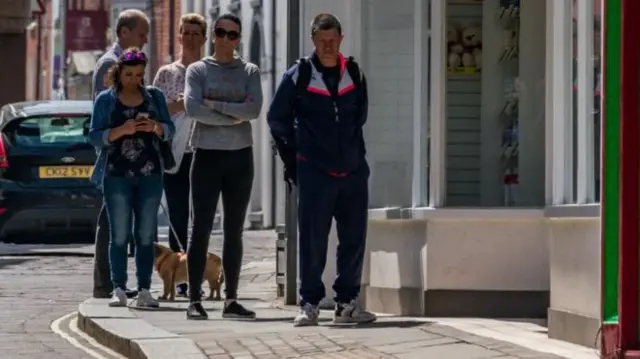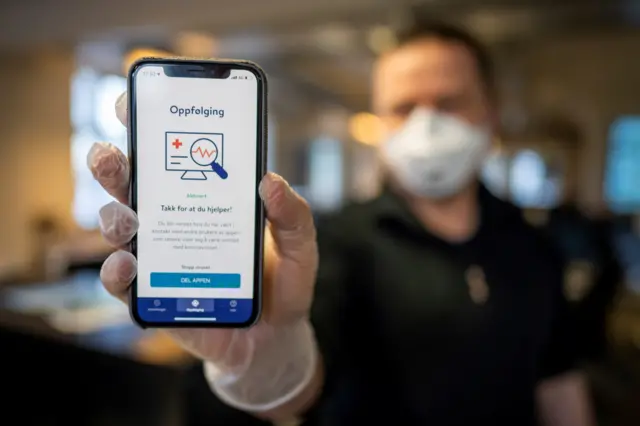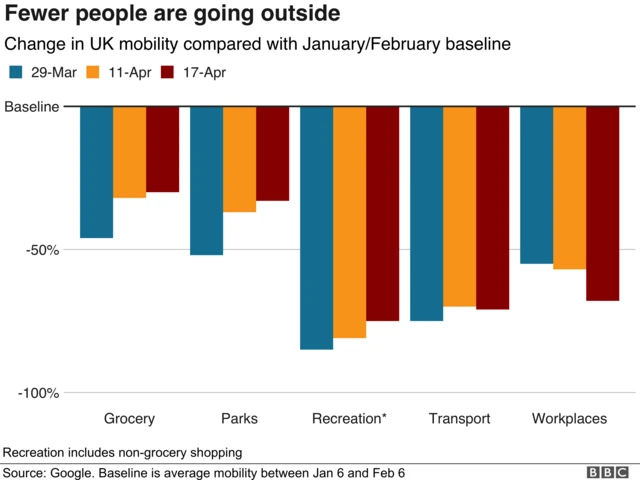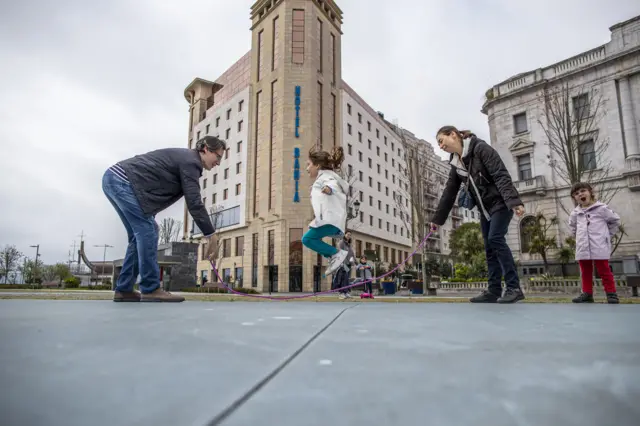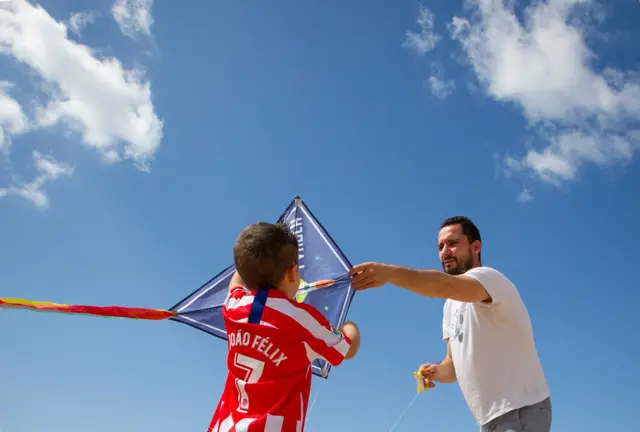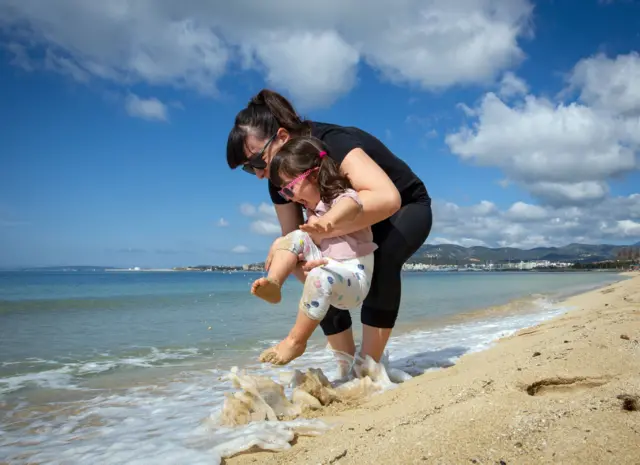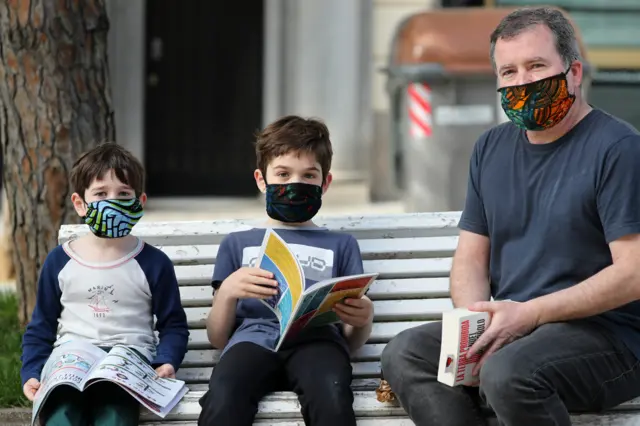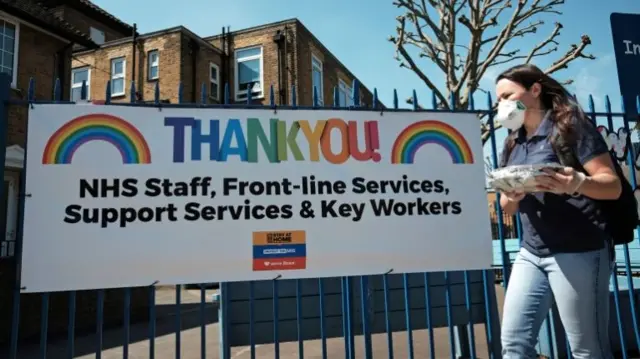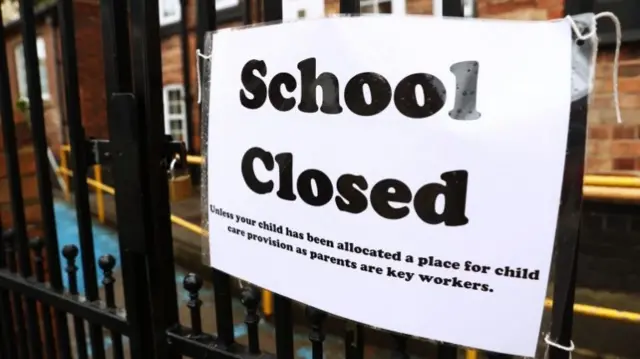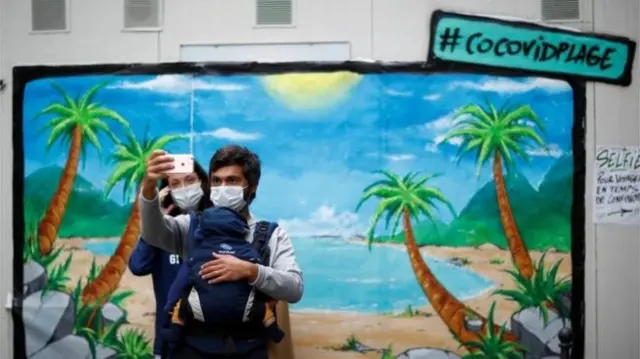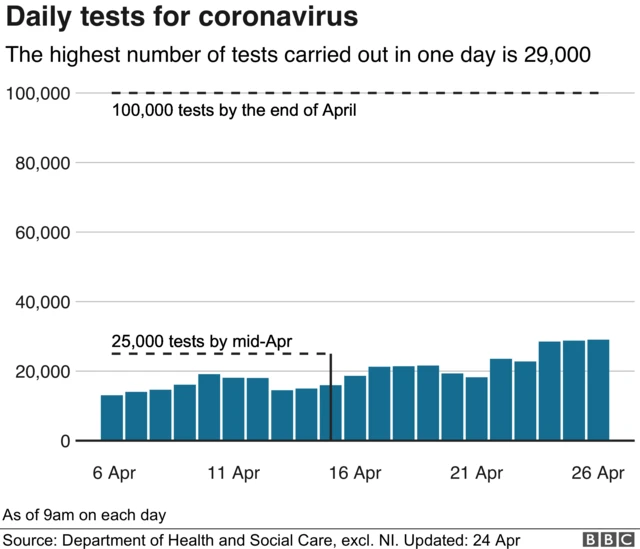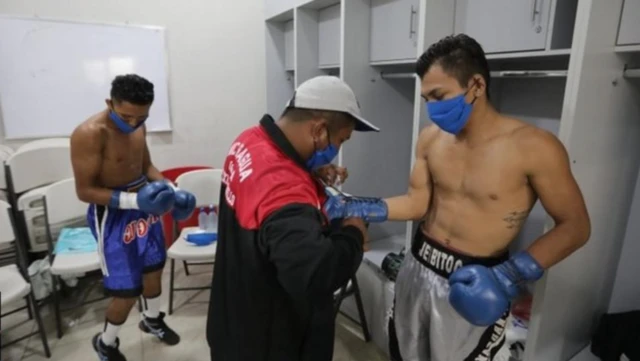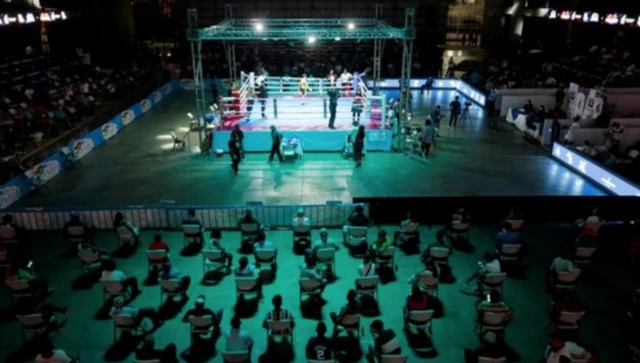We are pausing our live coveragepublished at 19:00 BST 26 April 2020
That's it from us today. Thank you for joining us. Here is a round-up of some of Sunday's key developments.
- Spain has recorded its lowest daily death toll since 20 March, with 288 fatalities. In a slight easing of lockdown measures, Spanish children are now allowed outside their homes for one hour a day, under adult supervision
- The UK's death toll has risen to 20,732, with a further 413 fatalities in hospitals - the lowest daily increase reported this month
- Police in Paris have seized 140,000 face masks destined for the black market. Officers caught the masks being unloaded from a lorry into a house in St Denis
- UK Prime Minister Boris Johnson is due to return to work on Monday as he recovers from Covid-19. The BBC understands he will chair a cabinet meeting and, possibly, lead the daily news briefing
- Top US health official Dr Deborah Birx says Americans can expect social distancing measures to continue over the summer

